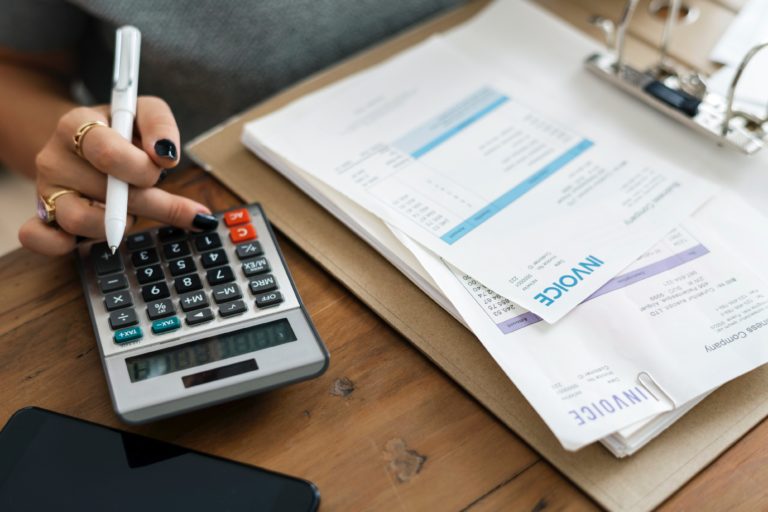Money Smart Week: How to Not Go Broke When Paying Off Your Debt
In honor of Money Smart Week 2015, I’ll be posting my best tips and resources on the blog Monday, Wednesday and Friday this week followed by a special roundup of my favorite personal finance posts on Saturday. If you’ve never heard of Money Smart Week, have you been living under a rock it’s a public awareness campaign (created by the Federal Reserve Bank of Chicago in 2002) designed to help consumers better manage their own finances and it’s recognized all throughout the country. Banks, financial advisors, credit unions etc. from all over gather their best knowledge and resources together to provide communities with the best of the best when it comes to improving your own financial situation. If you’re interested in getting involved this week by attending any local events your community is hosting, please check out MoneySmartWeek.org
Even though I’m not a certified financial planner, as a personal finance blogger, I felt it was only right to chime in and share the strategies I’ve adopted to help me get a grip on my finances and work my way out of debt. As a mom who’s been paying off debt and building up a financial safety net on a very modest salary (>$40k), I’ve managed to make ends meet and make extra payments on my debt each month without going broke. This means I’m not praying that my bank account won’t go overdraft, eating Ramen Noodles, or walking around with holes in my shoes.
The average American household is carrying $32,264 in student loan debt and $15,611 in credit card debt and more than 1/3 of the American population has some form of debt in collections.
These numbers are startling, and just because thousands of families are living with debt doesn’t make it normal. Living in debt and only paying the minimum payment each month is no way to live and we all deserve the freedom of a debt free life. Here are 4 things you can do to avoid going broke when actively paying off your debt.
Create a Realistic Budget Even if It Pains You
I’d love to say there’s some big secret out there to help you get your finances in order but the truth is, it all starts with a good old fashioned budget. Even if you hate budgets, it’s important to prioritize your expenses and spending categories by creating one. I’ve never been the type of person to sit down and enter figures into a spreadsheet and make fancy bar graphs from month to month but I do have a budget.
I usually just jot down all my expenses and bills for the month either on paper on in a Word document on my computer and check each item off after they’ve been paid. My debt payments are always right at the top of the list right under my rent since I can’t wait to throw more money toward my car loan and student loans each month. I also report to readers here on my blog with my monthly budget reviews. Whichever method you choose, just make sure you choose to create some form of a budget to limit and categorize your spending.
Decide What You Will Give Up Today In Order to Achieve Financial Freedom Tomorrow
It’s important to realize that in order to get out of debt, you will have to make a few sacrifices and give up some non-necessities to meet your goal. Cut out all your expensive habits like dining out every other night and try to find cheaper alternatives.
There are almost always more affordable options so make it your mission to find out what works best for you. In order to free up more of my money so I can get out of debt faster without going broke I chose to give up:
- Cable TV
- Dining out and ordering takeout often
- My expensive cell phone bill by switching to Republic Wireless for $10/mo.
- Mani/pedis every 2 weeks
- 2 of my credit cards
Your list may look different from mine but the main point is just to create a list and cut the dead weight from your expenses. When you commit to living a simpler life with fewer expenses, it not only frees up more money but allows you to be appreciative of what you already have.
Reduce Your Fixed Expenses to Live Within Your Means
Living above your means is a common trait that can easily cause you to fall into debt. So while you’re cutting your variable everyday expenses, don’t forget about your fixed expenses as well. The great thing about cutting your fixed expenses is that you only have to make the effort to do so once, then you can enjoy the benefits and savings throughout the year.
The biggest fixed expense I decided to cut last year was my housing. A good rule of thumb is that your housing expenses should never exceed 30% of your income. Last year I cut my housing expenses from 32% to 16% of my income by moving just down the street.
If you’re not interested in moving to a more affordable residence, there are plenty of bills you should be able to decrease and you should look into shopping around for the best insurance rates for auto and health insurance. The insurance industry is very competitive and you can’t be positive that you are getting the best rate if you don’t compare policies and check out your insurance carrier’s competition.
Increase Your Income
When you’ve decided on what you would give up in order to get out of debt and cut all your expenses, check again to make sure there are no other expenses you can possibly reduce. Then adjust your budget. If money is still tight, you always have the option to increase your income.
I’m personally not a fan of working a second traditional job if you already have a full-time job. Odds are your second job would be part-time and part time jobs usually don’t offer great wages or benefits. Plus it sounds exhausting and no fun.
You still don’t have to settle for your day job income alone though. You can always increase your income by picking up a side hustle. Find something you’re passionate about or enjoy doing and turn it into a money making side hustle. Whether you like to write, paint, design graphics, bake, or create crafts figure out how you can sell and market your services to others.
With the mass amount of information and resources that can be found on the internet, side hustling is easier to do than you would think and there are plenty of ways to earn extra money here and there because every little bit counts. It also sounds way more fun than working part-time at a job you could care less about.
I started freelance writing just a few months ago and I’m already earning a couple hundred dollars each month and my income is steadily increasing from freelancing. I use the extra money I make on the side of my full time job to make extra debt payments and fund my savings account as a cash buffer. Side hustling allows me to make money doing something I love and reduces my chances of going broke while I try to aggressively pay off my debt.
How do you avoid going ‘broke’ each month whether you have debt or not?
Stop Worrying About Money and Regain Control

Join 5,000+ others to get access to free printables to help you manage your monthly bills, reduce expenses, pay off debt, and more. Receive just two emails per month with exclusive content to help you on your journey.






